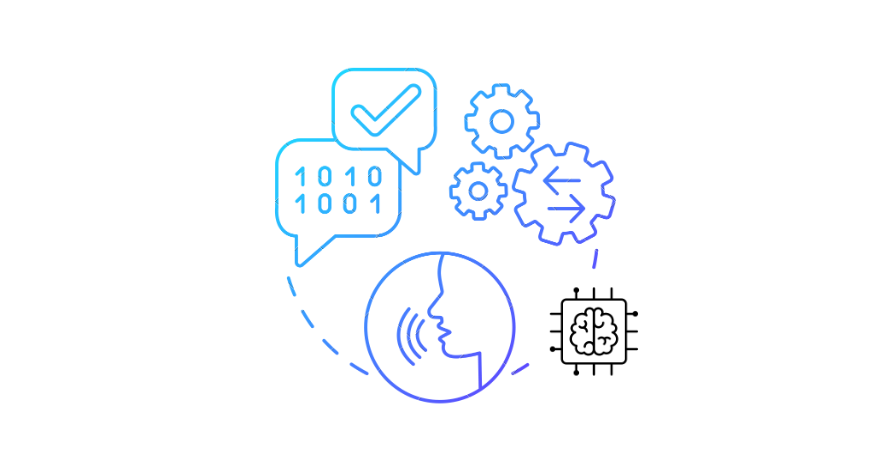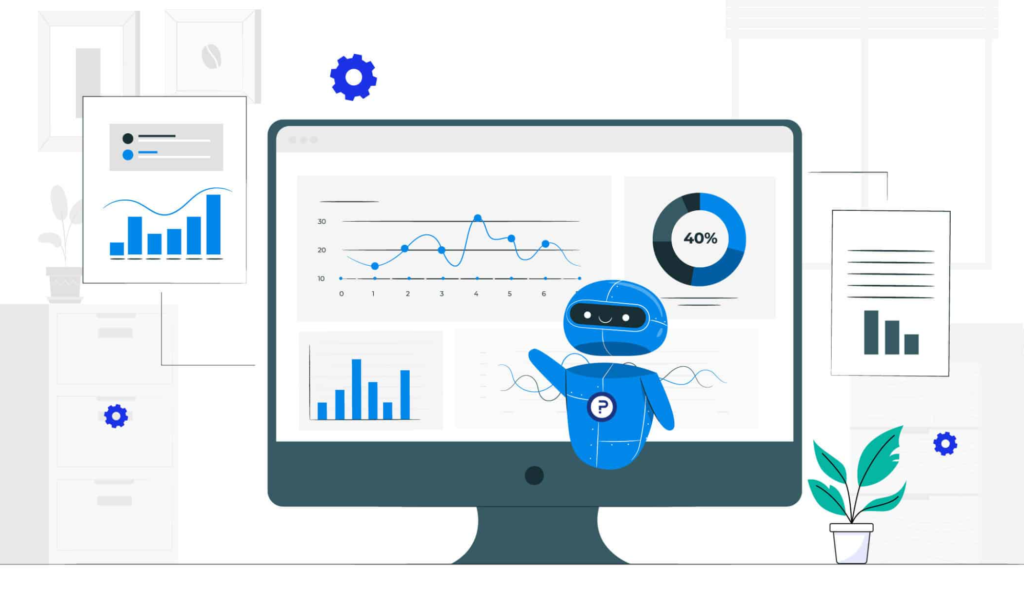In the ever-evolving landscape of digital marketing, staying ahead of the curve is not just an advantage—it’s a necessity. The emergence of machine learning (ML) has revolutionised the way businesses approach conversion optimisation.
Defining Machine Learning in the Context of Conversion Optimisation
Machine learning, in essence, is a type of artificial intelligence (AI) that enables computer systems to learn and improve from experience without needing specific, detailed programming instructions. Instead of being explicitly programmed for every task, these systems learn from data and adapt their behaviour accordingly.
Now, when it comes to conversion optimisation, machine learning plays a significant role. Imagine a scenario where a website wants to increase the number of visitors who make a purchase, sign up for a newsletter, or take any desired action—this is known as a conversion. Instead of manually testing different strategies or making educated guesses, machine learning algorithms can step in.
These algorithms analyse enormous amounts of data related to user behaviour, website interactions, demographics, and other factors. They look for patterns and connections within this data that humans might not easily spot. For instance, they might find that users from a particular geographic location tend to make more purchases during a specific time of day or that certain website layouts lead to higher conversion rates for certain demographics.
With these insights, machine learning algorithms can make predictions about which strategies are more likely to lead to conversions. And the beauty of it is that they don’t stop there—they continuously refine these strategies. As new data comes in and the system learns from how users interact with the website, the algorithms adapt and optimise the conversion strategies further. This iterative learning process allows for ongoing improvements without constant human intervention.
In essence, machine learning’s application to conversion optimisation involves leveraging data-driven insights and predictive analysis to enhance the likelihood of users taking desired actions on a website.
The Evolution of Conversion Optimisation
Traditional conversion optimisation methods, such as A/B testing and manual analysis of user behaviour, have been valuable tools for marketers seeking to understand how changes to a website or marketing strategy impact user engagement and conversion rates. A/B testing involves comparing two versions (A and B) of a webpage to determine which one performs better in terms of the desired outcome, such as making a purchase or filling out a form.
While these methods have their merits and have provided valuable insights, they do have limitations. A/B testing, for example, typically involves testing one or a few variations at a time, and the results are based on observed changes in user behaviour. This approach can be time-consuming, especially when considering the multitude of potential variables that can impact user experience.
Furthermore, consumer trends and preferences are constantly evolving. Traditional methods may struggle to keep up with the rapid pace of change in the digital landscape. This is where machine learning steps in to offer a more dynamic and adaptive solution.
Machine learning algorithms can process and analyse vast amounts of data at speeds beyond human capability. They can identify patterns and trends in real-time, allowing marketers to respond promptly to shifts in user behaviour and preferences. This adaptability is crucial in an environment where consumer trends can change rapidly due to factors like seasonal variations, cultural events, or emerging market trends.
By continuously learning from new data, machine learning algorithms can optimise conversion strategies on the fly. For example, if there’s a sudden surge in traffic from a specific demographic or region, the machine learning system can quickly adjust recommendations or personalised content to cater to the preferences of that particular audience.
Applications of Machine Learning in Conversion Optimisation

1. Personalisation at Scale
Tailoring User Experiences
One of the standout features of machine learning is its ability to create highly personalised user experiences. By analysing user behaviour, preferences, and historical data, machine learning algorithms can deliver targeted content, product recommendations, and messaging. This level of personalisation enhances user engagement, leading to higher conversion rates.
Dynamic Content Optimisation
Machine learning algorithms excel at understanding what type of content resonates with individual users. Whether it’s adjusting product recommendations, modifying website layouts, or customising calls to action, dynamic content optimisation ensures that each visitor sees the most relevant and persuasive content, ultimately increasing the likelihood of conversion.
2. Predictive Analytics
Anticipating User Behavior
Machine learning models leverage predictive analytics to anticipate user behaviour based on historical data and patterns. By understanding the factors that contribute to conversions, marketers can proactively optimise their strategies. Whether it’s predicting the optimal time to send promotional emails or forecasting product demand, predictive analytics powered by machine learning enhances decision-making processes.
Lead Scoring and Segmentation
Identifying high-value leads is a perpetual challenge for marketers. Machine learning algorithms streamline this process by assigning lead scores based on various criteria, such as engagement level, demographics, and past interactions. This enables marketers to prioritise and tailor their efforts towards leads that are more likely to convert.
3. Automated Experimentation
Continuous A/B Testing
While traditional A/B testing provides valuable insights, machine learning takes experimentation to the next level. Automated experimentation allows for continuous testing and optimisation, eliminating the need for manual intervention. Marketers can set parameters, and machine learning algorithms will iteratively test variations, swiftly adapting to changes in user behaviour and preferences.
Multivariate Testing
Beyond A/B testing, machine learning facilitates multivariate testing on a granular level. Marketers can simultaneously test multiple variables to identify the optimal combination for conversion. This iterative process ensures that every element of a campaign is fine-tuned for maximum impact.
4. Behavioral Analysis and Segmentation
Uncovering User Insights
Machine learning excels at analysing complex user behaviour patterns that may elude human observation. By segmenting users based on their behavior, marketers can tailor their strategies to different audience segments. Understanding the nuances of user behaviour enables the creation of targeted campaigns that resonate with specific audience segments, resulting in higher conversion rates.
Real-time Adaptation
The ability to analyse and interpret user behaviour in real-time is a game-changer. Machine learning algorithms can dynamically adapt marketing strategies based on the user’s actions during their website visit. Whether it’s adjusting pricing displays, modifying product recommendations, or altering the website layout, real-time adaptation ensures that the user experience is continually optimised for conversion.
Benefits of Implementing Machine Learning in Conversion Optimisation

1. Precision and Efficiency
- Streamlining Decision-Making: Machine learning algorithms process vast amounts of data with unmatched speed and precision. This enables marketers to make data-driven decisions in real-time, ensuring that optimisation efforts are always aligned with user preferences and market trends.
- Resource Optimisation: Automated processes powered by machine learning reduce the reliance on manual intervention. This not only saves time but also allows marketing teams to allocate resources more efficiently. Whether it’s adjusting ad spend, refining targeting parameters, or fine-tuning campaign elements, machine learning optimises resource allocation for maximum impact.
2. Continuous Improvement
- Iterative Learning: One of the defining characteristics of machine learning is its ability to learn and adapt over time. As algorithms process more data and encounter new scenarios, they continually refine their models. This iterative learning process ensures that conversion optimisation strategies evolve alongside changing market dynamics, providing a sustainable and future-proof solution for marketers.
- Adaptation to Market Changes: Consumer behaviour and market trends are dynamic, and machine learning excels in adapting to these changes. Whether it’s a sudden shift in user preferences or the emergence of a new competitor, machine learning algorithms can quickly analyse and adjust strategies to maintain optimal conversion rates.
3. Scalability
- Handling Complexity at Scale: As businesses grow, the complexity of managing and optimising conversion strategies increases exponentially. Machine learning scales effortlessly, handling the intricacies of large datasets and complex decision-making processes. This scalability ensures that conversion optimisation remains effective even as the scope of marketing efforts expands.
- Global Adaptation: For businesses with a global presence, understanding and adapting to diverse markets is crucial. Machine learning algorithms can analyse data from different regions and demographics, allowing marketers to tailor their strategies for maximum effectiveness across various cultural and geographical contexts.
Challenges and Considerations
Data Quality and Privacy Concerns
In the realm of machine learning, the significance of clean data cannot be overstated. The very foundation of machine learning algorithms rests upon the data they are fed, and the quality of this data is pivotal to their success. Inaccurate or biased data not only jeopardizes the reliability of predictions but can also lead to the formulation of suboptimal strategies. Recognising this, marketers find themselves at the forefront of a data-driven era, compelled to prioritise data cleanliness and establish robust data governance practices. These endeavours are not merely procedural; they are fundamental to ensuring the efficacy of machine learning algorithms in the pursuit of enhancing conversion rates.
Simultaneously, as machine learning delves into the intricacies of user behaviour for analysis, the spotlight intensifies on privacy concerns. The very information that fuels these algorithms is often personal and sensitive. Consequently, marketers find themselves at the crossroads of innovation and ethical responsibility. Transparent communication regarding data usage becomes paramount, as does the implementation of stringent security measures. In navigating this landscape, marketers must not only adhere to data protection regulations but also cultivate a relationship of trust with their audience.
In essence, the symbiosis of machine learning and marketing demands a dual commitment—to the meticulous curation of data quality and the safeguarding of user privacy. The success of machine learning algorithms hinges not only on their analytical prowess but also on the ethical and transparent practices that govern their utilisation.
Integration Challenges
Implementing machine learning for conversion optimisation may pose integration challenges with existing marketing systems. Marketers need to carefully plan and execute the integration process to ensure a seamless transition and avoid disruptions to ongoing campaigns.
Training and Skill Development
Adopting machine learning requires a certain level of expertise. Marketing teams may need to upskill or collaborate with data scientists to effectively harness the power of machine learning for conversion optimisation. Investing in training and skill development ensures that teams can leverage machine learning tools to their full potential.
Future Trends and Innovations

Advancements in Natural Language Processing (NLP)
The integration of NLP with machine learning opens new avenues for conversational marketing. Chatbots and virtual assistants powered by advanced NLP algorithms can engage with users in natural language, providing personalised recommendations and assistance, ultimately enhancing the conversion experience.
Enhanced Predictive Modeling
Advancements in predictive modeling will enable marketers to anticipate future trends with greater accuracy. Machine learning algorithms will not only analyse historical data but also factor in external variables and market indicators to provide more comprehensive and forward-looking insights.
Augmented Reality (AR) in Conversion Optimisation
As AR technology continues to evolve, integrating it with machine learning opens up possibilities for immersive shopping experiences. Virtual try-ons, personalised AR advertisements, and interactive product showcases can significantly impact conversion rates by providing a unique and engaging user experience.
In the dynamic world of digital marketing, staying competitive requires a strategic embrace of cutting-edge technologies. Machine learning stands as a cornerstone for the future of conversion optimisation, offering unparalleled insights, efficiency, and scalability. As marketers navigate the evolving landscape, understanding and harnessing the power of machine learning is not just an option—it’s a transformative imperative. By integrating machine learning into their toolkit, marketers can unlock new levels of precision, personalisation, and performance, ensuring their campaigns resonate with audiences and drive sustained, high-impact conversions.

